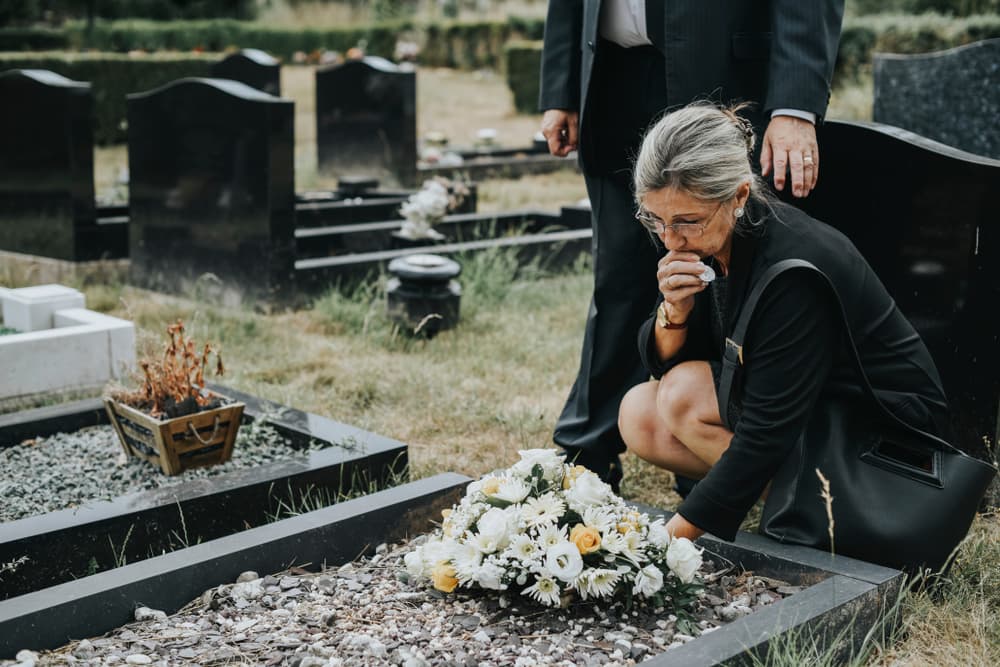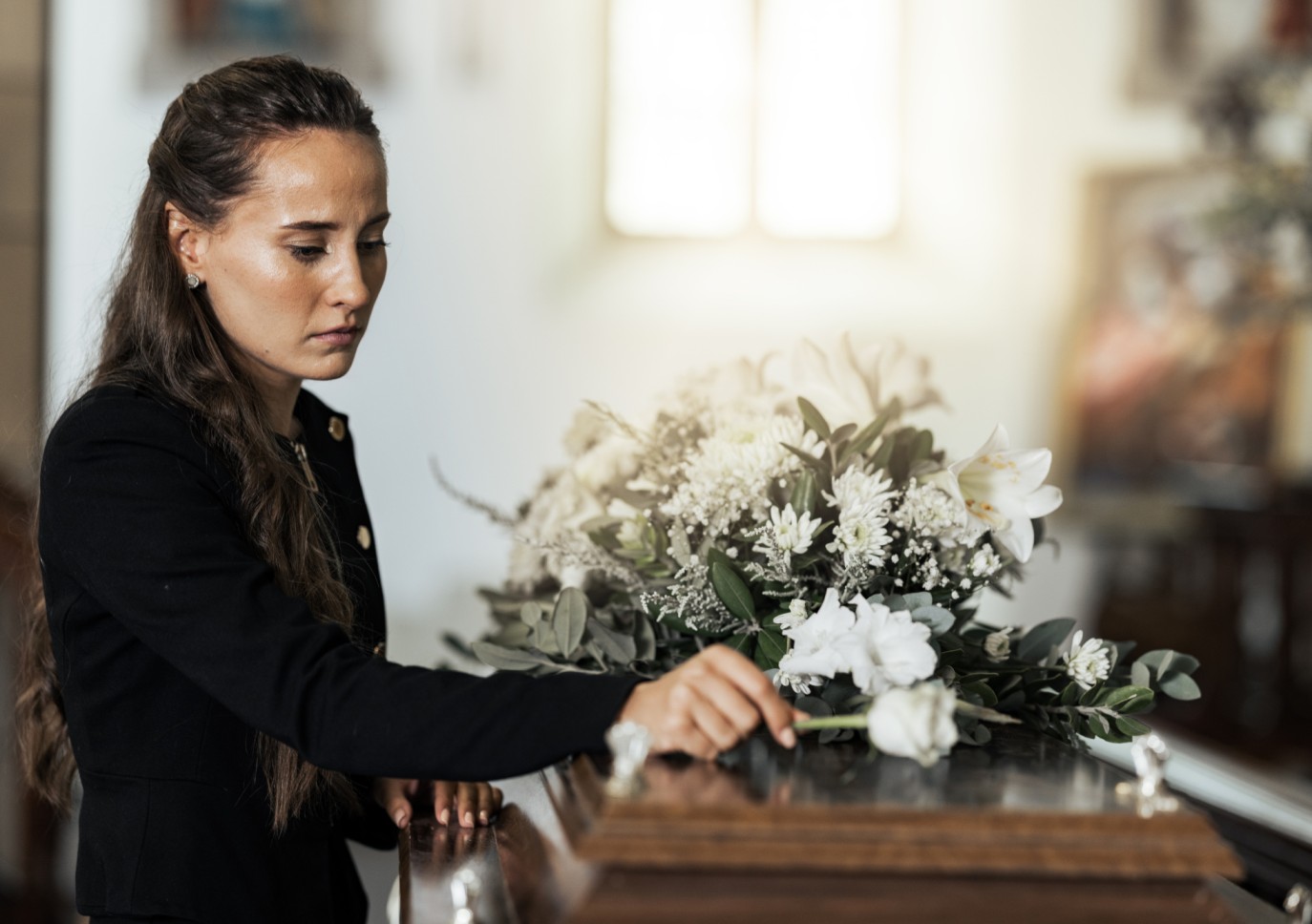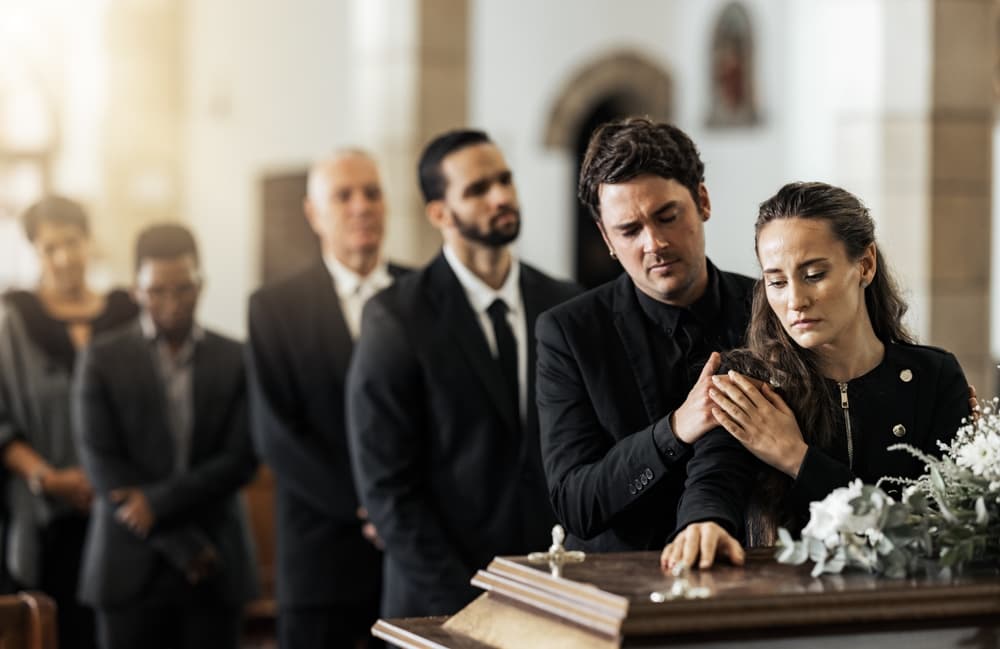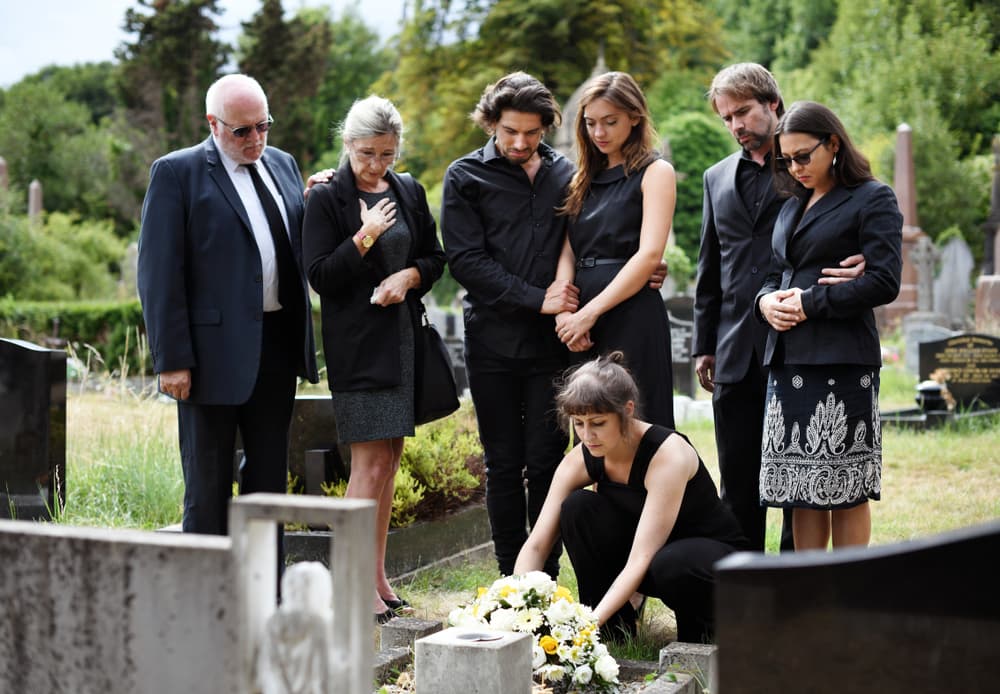Planning a funeral can be a hard task, especially if you are grieving the loss of a loved one. To help you through the funeral planning process we’ve put together a funeral planning checklist so that your planning process can be as painless as possible. When you keep these things in mind, your planned funeral for your loved one will be a special, heartfelt event that you can be proud of.
Complete the paperwork
Having the completed paperwork readily available means access to information will be easier for the family and for those suffering from the loss of the deceased. When planning a funeral, having the necessary paperwork ready will make the process a lot easier, especially if you are organizing a headstone or an engraved casket.
Select a funeral home
A good funeral home can make the world of difference to you if you are planning a funeral. They will know exactly how to plan a funeral service and provide you as the organizer with the guidance you need to put together a beautiful goodbye for the deceased. Mr. Vaults has been in the funeral industry for over 16 years and has all the expertise you will need.
Choose what service type you need
There are several types of funeral services you can choose from. Your funeral home will help you and give you guidance on how to plan a funeral service to suit what the deceased and the family of the departed want. Mr. Vaults specializes in cremation and graveside funeral services, and our experts would be more than happy to provide advice on which one would be more appropriate.
Choose a location
The location is usually chosen based on a personal attachment the deceased or the deceased’s family has to a certain area. When planning a funeral, the location may be the deceased’s hometown or place of birth. The location of the funeral service also depends on the family’s preferences. It’s lovely to have a funeral in a church but if they do not follow a certain religion, many prefer to have the funeral at the graveside, at the burial site.
Disposition and memorialization
This part of the funeral planning process is a deeply personal aspect. In some cases, the deceased would have expressed whether or not they want to be buried, cremated, or embalmed. In other circumstances, family and religious traditions may determine the memorialization and disposition method. It’s important to establish this early on in the funeral planning process so that there is time to communicate this with the rest of the family.
Write a thoughtful obituary
If you were close to the deceased, this is an incredibly challenging part of the planning process. An obituary is a message that announces the death of a loved one and often contains happy memories of the deceased. Adding a personal touch and thought to the obituary is a wonderful way of commemorating a life well-lived.
Determine who will be involved in the funeral service
This can be a difficult task to do as there is always a fear of offending someone if they are not chosen to participate in the service. The best thing to do is to remember that the service is about the deceased and no one else. It’s also usually best to include only close family and friends in the service unless the deceased was able to request otherwise prior to their death.

Fund the funeral in advance
Many insurance companies offer funeral cover which can help with the expense of the funeral and saves you and the family from having to fund it out of your personal pockets. There are also financial aids available for those who have lost a loved one unexpectedly.
Personalize the funeral service
When looking at how to plan a funeral, one of the most important things to keep in mind is to make sure the funeral is a deeply personal affair. It’s often good to sit down with a pen and paper and go through everything that the deceased enjoyed, was passionate about and what meant the most to them. By doing this you will be able to incorporate personal aspects from the deceased’s past life into the day when planning a funeral.
List friends and family to be notified of the death
Notifying people of someone’s passing is never an easy task. To help with the funeral planning process, it’s often easier to make a list of all those who need to be notified in advance, and then dedicate a day to telling everyone at once. You should prepare yourself for emotional responses but you must remember to tell them about the funeral arrangements including the location, date, and time.
Keep family members informed of your plans
As a grieving family, it can be difficult for the members to be fully involved in funeral planning arrangements. For this reason, make sure you keep them informed and get their approval for funeral arrangements you have made if you are the main organizer. The funeral home can also help with keeping the lines of communication open between you and the family.
There may be some personal aspects the family will know to include and some wishes they will need to be fulfilled on the day. These need to be honored as far as possible and it will mean a lot to the family that they are contributing to planning the funeral.
Ask about resources for grief support
The funeral home you select will be able to point you in the right direction when seeking grief support. Losing a loved one can be an intensely traumatic experience, especially if the death was unexpected. As part of the planning a funeral checklist, you will want to know who people can reach out to seek the emotional support and guidance they need while navigating their grieving journey. If you feel that it is appropriate, you can also offer support to the family and let them know that you are there to support them if they need you.



